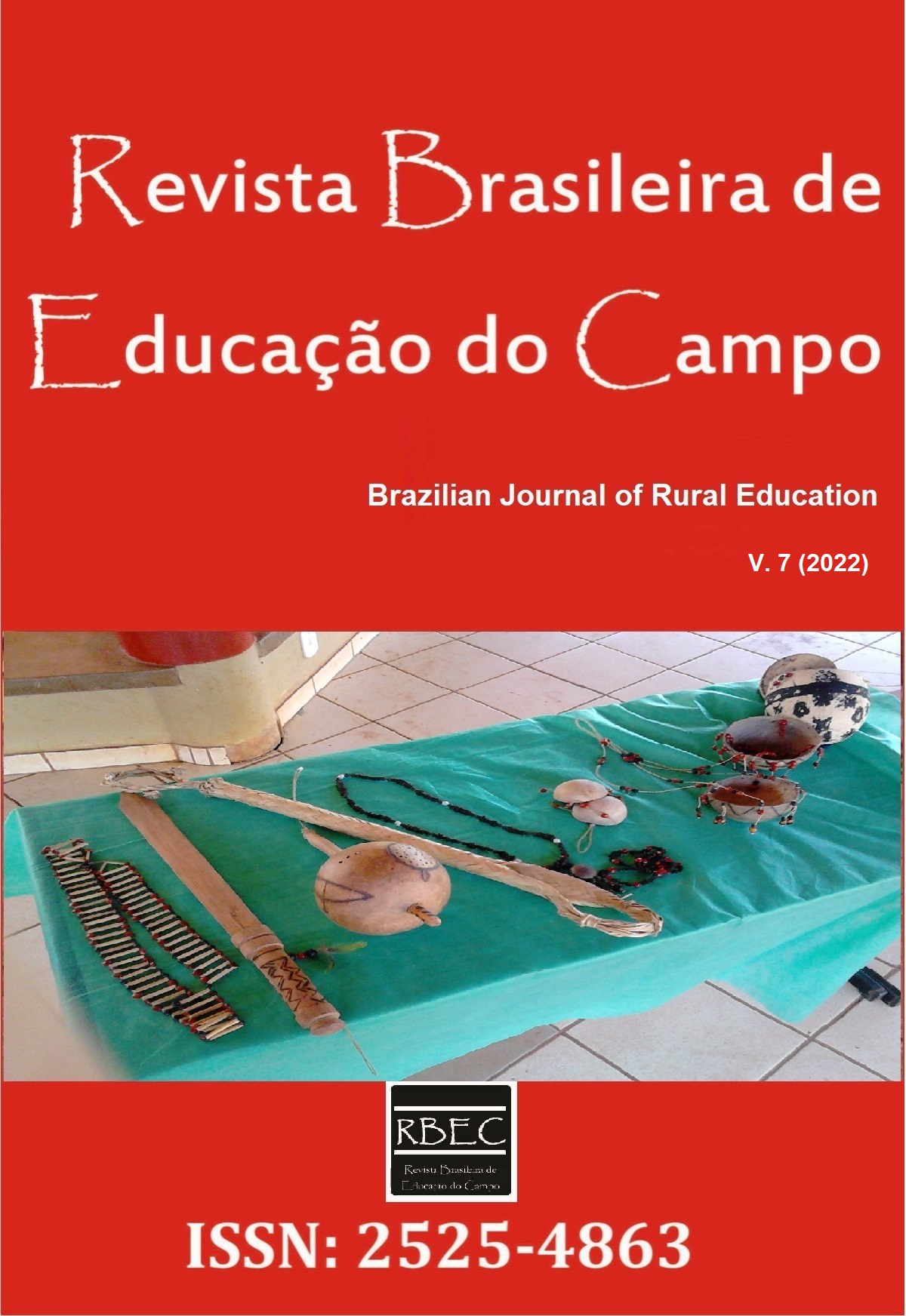The place of Education in the Formation of the Landless Subject's Identity
DOI:
https://doi.org/10.20873/uft.rbec.e13824Abstract
ABSTRACT. This paper discuss the Landless Workers Movement (MST), and the constitution of the identity of these subjects belonging to the movement, seeking to envision the social movement as a formative principle. Through a bibliographic survey, it was discussed how social movements are constituted in a conjuncture of dispute, being essentially, political-social processes. We emphasize that the MST is born from concrete struggles, from subjects who, by living in their skin, rebelled against the processes of exclusion, engendered by the neoliberal capitalist model. Through the struggle for land and its dynamics of organization and initiatives, based on collectivity and belonging to the social movement, the MST presents the possibility of building a new popular development project for the country. The formation of landless subjects takes place in the experiences within the movement, which gives them a greater meaning than the individual, and inserts them into a common perspective of life, and thus, talking about an educational project from/to the countryside, it means thinking about the subjects who fight and work on the land, and see their life and work in it. The formation in this context is a human doing, which builds and is built in a movement, of social struggle.
Downloads
Literaturhinweise
Arroyo, M. G., & Fernandes, B. M. (1999). A educação básica e o movimento social do campo. Brasília, DF: Articulação Nacional Por Uma Educação Básica do Campo. Coleção Por Uma Educação Básica do Campo, n. 2.
Baldi, F., & Orso, P. J. (2013). Movimento dos trabalhadores rurais sem-terra – MST- educação em movimento. Revista HISTEDBR On-line, (50), 275-285. https://doi.org/10.20396/rho.v13i50.8640308
Lei nº 4.504, de 30 de novembro de 1964. (1964). Dispõe sobre o Estatuto da Terra, e dá outras providências. Recuperado de: http://www.planalto.gov.br/ccivil_03/leis/l4504.htm
Caldart, R. S. (2001). O MST e a formação dos sem-terra: o movimento social como princípio educativo. Estudos Avançados, 15(43). https://doi.org/10.1590/S0103-40142001000300016
Caldart, R. S. (2000a). A pedagogia da luta pela terra: o movimento social como princípio educativo. Reunião Anual da ANPED, Porto Alegre: 23.
Caldart, R. S. (2000b). Pedagogia do movimento sem-terra: escola e mais que escola. Petrópolis – RJ: Vozes.
Fernandes, B. M. (2008). O MST e as Reformas Agrárias do Brasil. OSAL: Observatório Social de América Latina, Ano 9, n. 24, p. 73-85.
Freire, P. (2014). Pedagogia da autonomia: saberes necessários à prática educativa. 49 ed. São Paulo: Paz e Terra.
Gohn, M. G. (1997). Teorias dos movimentos sociais: Paradigmas clássicos e contemporâneos. São Paulo: Loyola.
Mariano, A. (2019). Pedagogia da resistência e o projeto educativo das escolas do MST. In Cássio, F. (Org.). Educação contra a barbárie: por escolas democráticas e pela liberdade de ensinar (pp. 175-180). São Paulo: Boitempo
MST. (1991). O que queremos com as escolas dos assentamentos. Caderno de Formação n. 18.
Neto, L. B. (2016). Educação rural no Brasil: do ruralismo pedagógico ao movimento por uma educação do campo. Uberlândia: Navegando Publicações.
Schwaab, B., & Caldart, R.S. (1990). Nossa luta é nossa escola: a educação das crianças nos acampamentos e assentamentos. Cartilha FUNDEP/DER/MST RS.
Veröffentlicht
Zitationsvorschlag
Ausgabe
Rubrik
Lizenz
Copyright (c) 2022 Mayara Duarte Pelegrini, Maria Simone Ferraz Pereira

Dieses Werk steht unter der Lizenz Creative Commons Namensnennung 4.0 International.
Creative Commons Attribution License
Creative Commons Attribution License
Proposal for Copyright Notice Creative Commons
1. Policy Proposal to Open Access Journals
Authors who publish with this journal agree to the following terms:
A. Authors retain copyright and grant the journal right of first publication with the work simultaneously licensed under the Creative Commons Attribution License that allows sharing the work with recognition of its initial publication in this journal.
B. Authors are able to take on additional contracts separately, non-exclusive distribution of the version of the paper published in this journal (ex .: publish in institutional repository or as a book), with an acknowledgment of its initial publication in this journal.
C. Authors are permitted and encouraged to post their work online (eg .: in institutional repositories or on their website) at any point before or during the editorial process, as it can lead to productive exchanges, as well as increase the impact and the citation of published work (See the Effect of Open Access).














